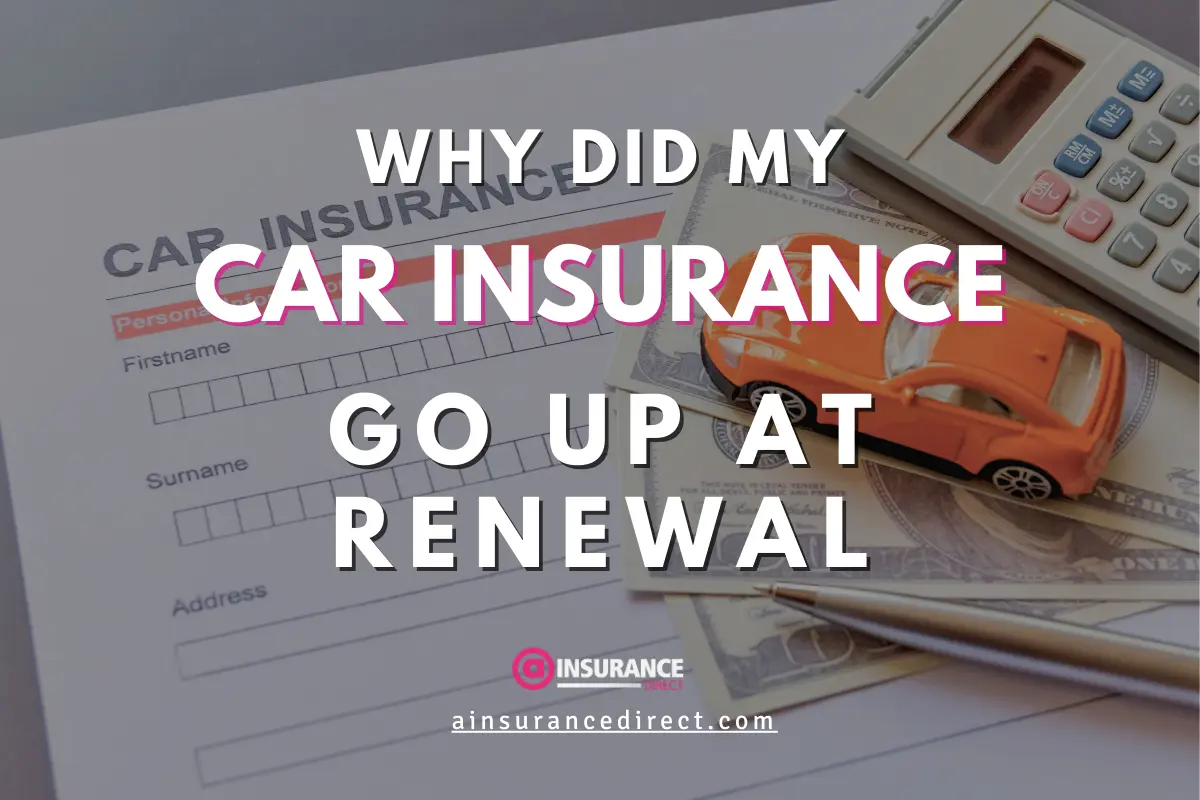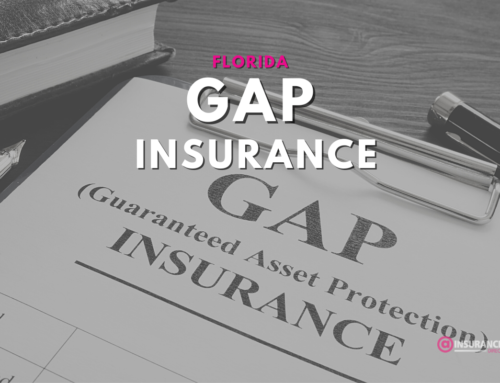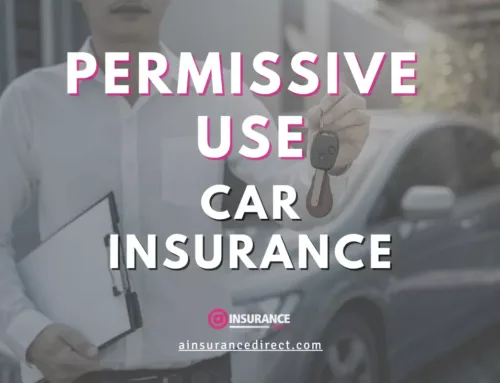
Why Your Car Insurance Premium at Renewal Increased?
Several factors influence car insurance premium at renewal. An individual’s driving history and age play a significant role in determining premiums, as insurers consider these factors when assessing risk. Additionally, the location and type of vehicle can impact rates, with certain areas and vehicles posing higher risks. Ultimately, the coverage options chosen, such as liability limits and deductible levels, also contribute to the overall premium cost.
Understanding these factors can help individuals make informed decisions when purchasing car insurance and potentially save money on premiums. In this blog post, we will explore the factors that influence car insurance premiums to increase at renewal. By gaining insight into these factors, our readers will be equipped with valuable knowledge to navigate the complex world of car insurance. It will also help you to make choices that align with your coverage needs and budget. Let’s see the details about the reason for increasing the price, including coverage options, deductible amount, driving record, age, gender, location, and vehicle type.
Changes in Personal Circumstances that Impact Car Insurance Rates
When it comes to car insurance rates, various personal circumstances can have a significant impact on the premiums you pay. Insurance companies take into account several factors when determining your rate at renewal, and changes in your personal circumstances can lead to adjustments in the cost of your coverage.
How Driving Record Influences Your Insurance Premiums at Renewal.
One of the key factors that affect car insurance rates is your driving record. Any changes in this regard, such as getting a ticket or being involved in an accident, can result in an increase in your premiums. Similarly, if you have a history of safe driving and maintain a clean record, you may qualify for discounts or lower rates.
Your driving record, which includes any traffic violations, accidents, or citations, is a direct reflection of your driving behavior and risk profile. Insurers view drivers with clean records as lower risk, and they often offer lower premiums to these individuals. Conversely, a history of speeding tickets, at-fault accidents, or DUI convictions can result in significantly higher insurance costs, as these behaviors indicate a higher likelihood of future claims.
How Claims History Influences Your Insurance Premiums at Renewal.
In addition to your driving record, your claims history also plays a role in your insurance rates. If you have filed multiple claims with your insurer, whether for accidents, theft, or other covered events, you may be seen as a higher-risk driver. Insurers often use this information to adjust your premiums accordingly, as they aim to balance the risk they take on with the premiums they collect.
Changes to Your Address or ZIP Code May Increase Your Premiums.
Another important aspect is changes to your address or location. Moving to an area with higher crime rates or more traffic accidents could lead to higher premiums due to increased risk. On the other hand, relocating to a safer neighborhood or one with less traffic may result in lower insurance costs.
Changes to Marriage Status or Adding a Teenager to Your Policy.
Life events such as getting married or having children can also impact car insurance rates. Married individuals often benefit from lower premiums as they are seen as more responsible drivers statistically. Additionally, adding teenage drivers to your policy can increase rates due to their lack of experience behind the wheel.
Changes to Your Work Location.
Changes in employment status and annual mileage driven can also influence car insurance rates. If you start working from home or reduce your commute significantly, you may be eligible for lower premiums since you’ll be spending less time on the road.
Inflation and Rising Costs of Repairs Can Increase Your Auto Insurance Premiums at Renewal.
As the cost of living continues to rise, consumers are feeling the impact across various aspects of their lives, including the expenses associated with owning and maintaining a vehicle. The ongoing inflation and the increasing costs of automotive repairs have had a significant influence on auto insurance premiums.
The rising prices of labor, parts, and materials have led to a surge in the overall cost of vehicle repairs. This has resulted in insurance providers adjusting their rates to account for the higher claims payouts they are experiencing. Insurers must balance the need to provide coverage that adequately protects policyholders while also maintaining profitability in the face of these escalating expenses.
Understanding the relationship between inflation, repair costs, and auto insurance premiums is crucial for consumers to make informed decisions about their coverage. By staying informed about these market trends, drivers can better prepare for potential changes in their insurance costs and explore strategies to mitigate the impact on their household budgets.
Car Insurance Fraud
When your car insurance policy comes up for renewal, you may be surprised to find that your premium has increased. While there can be legitimate reasons for this, it’s important to be aware of auto insurance fraud in your state. Insurance fraud has increased over the years. The total cost of insurance fraud is estimated to be more than $40 billion per year in the USA. The Florida Insurance Fraud Task Force states that auto insurance fraud in Florida costs about $1.6 billion annually. This is one of the reasons why your insurance is increasing at renewal.
Insurance Fact
Changes in Underwriting Guidelines or Rating Models from Your Carrier
Insurance companies are constantly evolving their underwriting guidelines and rating models to adapt to changing market conditions, emerging risks, and regulatory requirements. These changes can have a significant impact on policyholders, both in terms of coverage and premium rates.
Underwriting guidelines outline the criteria an insurance company uses to assess the risk of an individual or business and determine whether to offer coverage, and at what price. Factors such as age, health status, driving record, and credit history are commonly used in the underwriting process. As new data becomes available or risk profiles shift, insurers may update their guidelines to better manage their risk exposure.
Similarly, rating models are the mathematical formulas used by insurers to calculate premium rates. These models take into account a variety of variables, including the type of coverage, the policyholder’s risk profile, and market conditions. Adjustments to rating models can result in changes to the premiums charged to policyholders, which can be either increases or decreases depending on the specific factors involved.

The Importance of Shopping Around for Competitive Quotes at Renewal Time
When it comes to insurance policies, it’s crucial to shop around and compare car insurance quotes at renewal time. Failing to do so can result in missing out on potential savings or ending up with coverage that no longer meets your needs.
What Is The Minimum Insurance Coverage Required by Most US States?
| Minimum Insurance Required |
Bodily Injury (BI) | Property Damage (PD) |
Personal Injury Protection (PIP) |
|---|---|---|---|
| Florida (No-Fault) | optional coverage | $10,000 | $10,000 |
| Texas (At-Fault) | $30,000 per person, $60,000 per accident |
$25,000 | optional coverage |
| Tennessee (At-Fault) | $25,000 per person, $50,000 per accident |
$15,000 | optional coverage |
What Is The Average Auto Insurance Cost Per Year?
| Average Cost Per Year | State Minimum Car Insurance | Basic Full Car Insurance | Full Car Insurance |
|---|---|---|---|
| Florida | $835 | $1,620 | $1,920 |
| Texas | $718 | $1,565 | $1,842 |
| Tennessee | $539 | $1,354 | $1,583 |
Insurers often adjust their rates annually, so what may have been the best policy for you a year ago may no longer be the most competitive option. By gathering a quote from Insurance Direct, you can ensure you’re getting the best value for your money. Your circumstances may have changed over the past year, so it’s a good opportunity to reevaluate your needs and find a policy that aligns better with your current situation. Taking the time to compare quotes from Insurance Direct can save you a significant amount on your insurance premiums.


